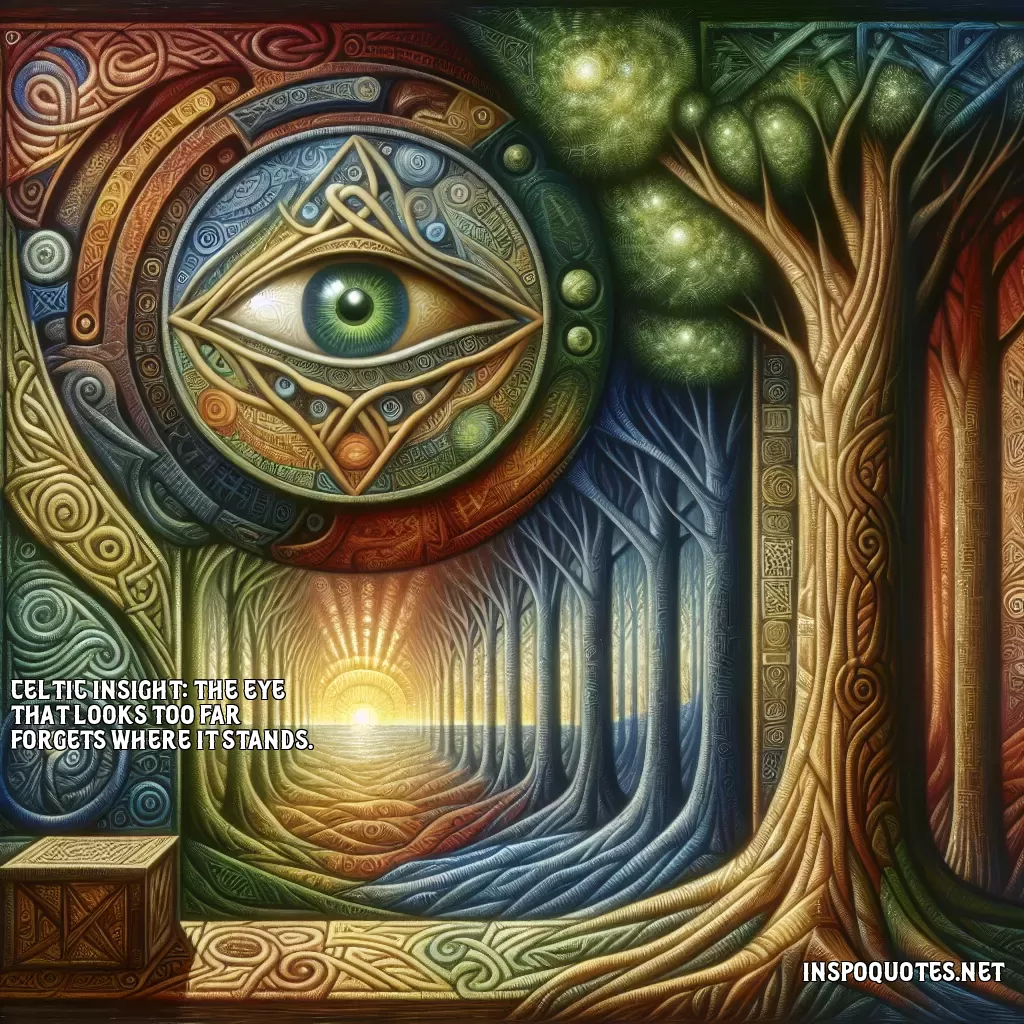
Celtic Insight: The eye that looks too far forgets where it stands.
Author: Lao Tzu
👁️ 2 views
The quote "The eye that looks too far forgets where it stands" is a metaphorical reminder of the importance of maintaining a balanced perspective. It suggests that when one is overly focused on distant goals, future plans, or external aspirations, they may lose touch with their current reality, values, or surroundings. This quote, described as Celtic Insight, reflects the time-honored wisdom found in many Celtic cultures, which often emphasize harmony with nature and an appreciation for the present moment. In a modern context, this saying serves as a caution against becoming too engrossed in ambitions or hypothetical futures at the expense of appreciating and understanding one's present situation. It's an invitation to find equilibrium between dreaming and living, between ambition and presence. While setting goals and envisioning the future are important components of growth and progress, this perspective warns against allowing such pursuits to overshadow the significance of the here and now. Moreover, the quote can be interpreted as a commentary on the value of self-awareness and grounding. By suggesting the eye "forgets where it stands," it implies that individuals might overlook their current capabilities, resources, or challenges when they become overly preoccupied with distant outcomes. This can result in a sense of detachment or disconnection from the self, leading to misguided decisions or dissatisfaction. Ultimately, this Celtic insight encourages individuals to nurture mindfulness and self-reflection, ensuring that as they set their sights on distant horizons, they remember to remain anchored in their immediate experiences and relationships. It emphasizes the need to cultivate a sense of presence and appreciation for the journey, not just the destination.
Quote By: Lao Tzu
Lao Tzu, an ancient Chinese philosopher and writer, is best known as the founder of Taoism and the author of the foundational text, the "Tao Te Ching." He is traditionally believed to have lived during the 6th century BCE, although some scholars suggest he may have lived later. His teachings emphasize living in harmony with the Tao, or the fundamental nature of the universe, advocating for simplicity, humility, and compassion as core principles for a fulfilled life.
Bio added on: 2025-02-15 09:16:49